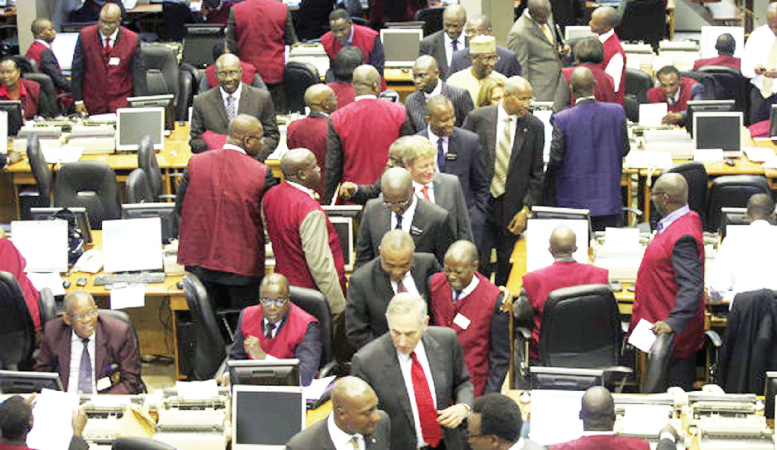- SEC Moves to Open up Stock Market to Small-Scale Investors
The Securities and Exchange Commission (SEC) has launched a bid to simplify stock market’s account opening process and requirements for low-income and financially- excluded segment of the population.
This is part of efforts to widen the domestic investors’base.
Less than three per cent of the population invests in the stock market, a situation that narrows the national capital formation process and subjects the market to extreme fluctuations of foreign portfolio investors.
In a circular at the weekend, SEC plans to introduce a new three-tiered account opening and requirements that allow financially excluded and low-income persons to start investing in the stock market. This will be done with simple identifications and with no specified minimum investment deposit.
With these, any Nigerian that can provide basic information such as name, passport-sized photograph, place of birth, nationality, gender, home location and address and telephone number; directly or through an agent, will be able to open a stock market investment account with as little as the person can afford. There is no further provision of documentary evidence for verification.
The proposed framework is, however, still subject to further scrutiny of stakeholders and approval by the board of SEC.
Under the three tiered know-your-customer (KYC) requirements being introduced under the new framework, potential investors are categorised under the three headings of low-risk account, medium-risk account and high-risk account. Capital market operators are required to move accounts to the next level once they exceed the stated maximum cumulative balance for each level.
For the low-risk account, no minimum investment amount is required for opening the account, which may be opened through an agent, at the stockbroker’s office or linked to a mobile phone. Under this category, investments can be made by account holder and third parties while redemption payments are restricted to account holder.
This account applies only to Nigerian citizens or residents and there shall be no transfer of funds to other accounts and no foreign remittance can be credited to the account. A low-risk account is limited to only one account per person for each capital market operator and it shall be limited to a maximum single deposit amount of N20,000 and maximum cumulative balance of N200,000 at any point in time. It shall also be limited to a maximum daily redemption limit of N30, 000.
To open a low-risk account, a prospective investor only need to provide basic customer information such as name, passport-sized photograph, place of birth, nationality, gender, home location and address and telephone number and all these may be sent electronically or submitted onsite to the capital market operator, its branches or agent’s office. There shall be no further request for documentary evidence of identity.
The medium-risk account builds on the requirements for low-risk account by requesting for verification of the basic customer identification information. The medium-risk account may be operated by phone or through the capital market operator’s customer web site and portal.
The medium-risk account is limited to a maximum single deposit of N40, 000, a maximum cumulative balance of N400, 000 at any point in time and a maximum daily redemption limit of N50, 000.
In addition to these, a medium-risk account holder will be required to provide suitable referees, which may include village heads, trade groups, supervisors and employers among others.
“Where verification of client’s identification documents is not complete the client shall not be allowed to operate the account,” according to the proposed framework.
Under the high-risk account classification, capital market operators are required to obtain, verify and maintain copies of all the required documents for opening of accounts. Such accounts can only be opened at the capital market operator’s office or branch of its agent’s office face to face by the prospective customer and a minimum investment amount may be required for the opening of high-risk accounts. There shall be no maximum limit on single deposits and cumulative balance.
The high-risk customers are required to comply with the KYC requirements contained in SEC’s Anti-Money Laundering and Combating the Financing of Terrorism Regulations, 2013. Besides, high-risk customer identification information and documents are to be verified against similar information contained in relevant data bases.


 Billionaire Watch3 weeks ago
Billionaire Watch3 weeks ago
 Startups4 weeks ago
Startups4 weeks ago
 News4 weeks ago
News4 weeks ago
 News4 weeks ago
News4 weeks ago
 Bitcoin4 weeks ago
Bitcoin4 weeks ago
 Naira4 weeks ago
Naira4 weeks ago
 Forex3 weeks ago
Forex3 weeks ago
 Treasury Bills4 weeks ago
Treasury Bills4 weeks ago
























